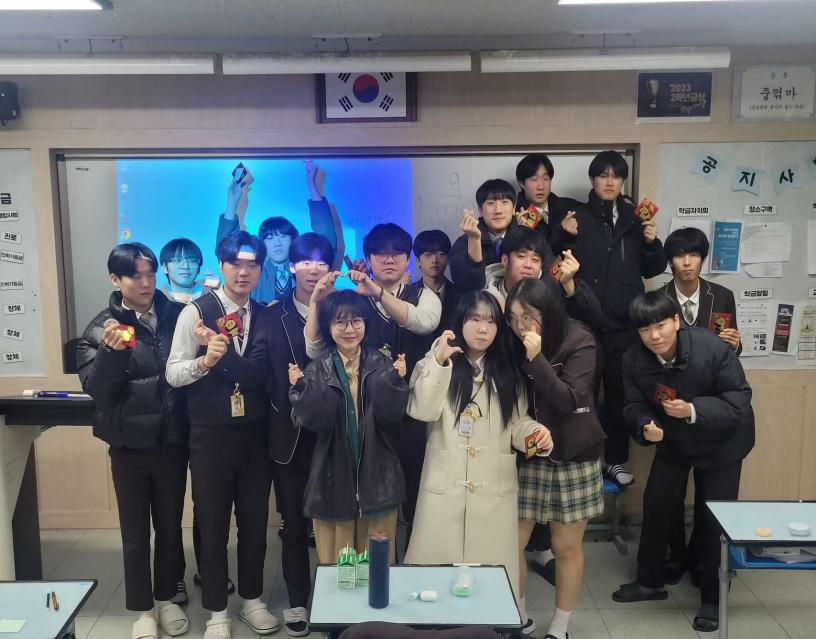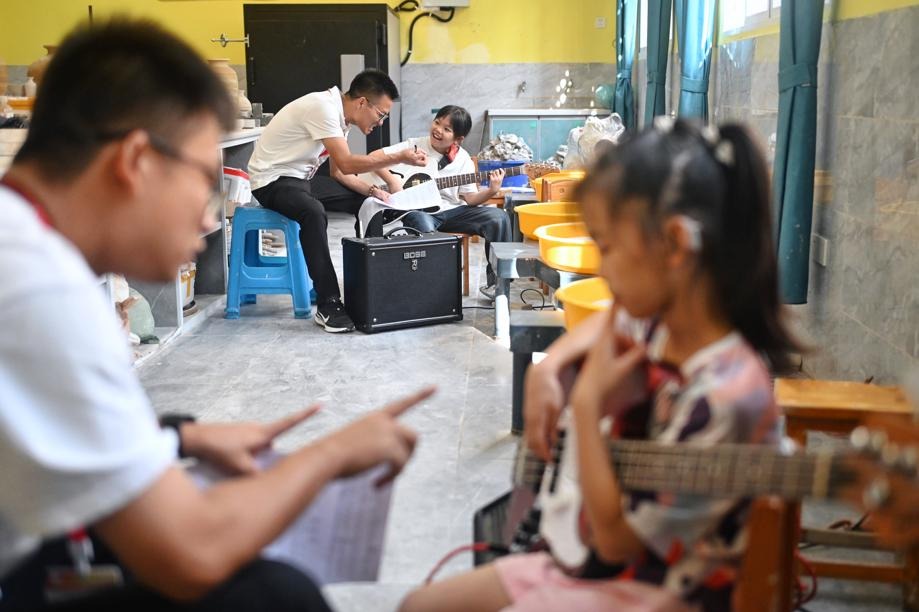Chinese language education embraces digital economy at Shanghai university


The Center for Language Education and Cooperation and Shanghai University of Finance and Economics recently jointly established a research center combining Chinese language and digital economy expertise, marking a shift in addressing the challenges of language education in the digital age while nurturing international talent with interdisciplinary skills.
The initiative comes at a time when the traditional landscape of Chinese language education is undergoing a transformation as digital technology reshapes teaching methods and creates new opportunities for international engagement.
"We initially thought teaching Chinese was just about following textbooks, but we've discovered that AI and Chinese popular culture are the real keys to engaging students," said Liu Sixu, a SUFE graduate student volunteer teaching in South Korea, who has witnessed firsthand how AI tools enhance intercultural communication.
Students under Liu's guidance have embraced AI voice software to refine their pronunciation and learn Chinese songs through AI-choreographed dance movements. Many now actively share Chinese-captioned dance videos on social media, reflecting their growing enthusiasm for the language.
In Estonia, SUFE volunteers have transformed language instruction by integrating AI-curated content with hands-on cultural experiences. Their approach includes cooking workshops where students explore Chinese traditions while following AI-developed guidance. During Mid-Autumn Festival celebrations, AI-generated mooncake-making tutorials combined with classical poetry helped students grasp cultural concepts like "homesickness" and "reunion".
The university's story in cultivating interdisciplinary talent is exemplified by Jhenny Shan, a Bolivian-Chinese SUFE graduate. Leveraging her dual expertise in international economics and teaching Chinese to speakers of other languages, Shan developed a trading platform connecting Chinese suppliers with Latin American markets.
"Understanding Chinese business thinking and cultural DNA at their core has been transformative," she said.
According to SUFE, the research center aims to systematize these innovations, with initiatives encompassing academic development, teaching resource creation, industrial applications, and international exchanges.
"Our university has actively promoted digital transformation and improved students' digital literacy through comprehensive reforms," said SUFE Party Secretary Xu Tao. "This research center marks another milestone in cultivating interdisciplinary talent."
- Chinese language education embraces digital economy at Shanghai university
- Novartis hosts China Patient Day event to explore patient-centric healthcare innovations
- China's first natl conference on civility in rural areas targets local customs, culture
- China's latest launch mission marks 600th flight of Long March rockets
- China-Laos Railway cross-border ridership steadily rising
- Shanghai nature conservation festival to highlight ecological protection and smart governance





































